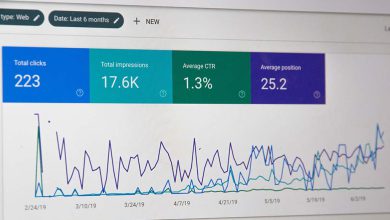What is Local SEO? + Local SEO Checklist

Local SEO, or local search engine optimization, is a powerful tool that helps businesses increase their visibility in local search results. By using a range of techniques to optimize their online presence for location-based searches, businesses can attract more local customers and improve their revenue.
For businesses that rely on local customers, such as restaurants, retail stores, and service-based businesses, Local SEO is essential. It can help them rank higher in local search results, making it easier for potential customers to find and engage with them online.
To help businesses navigate the complex world of Local SEO, we have created a comprehensive Local SEO Checklist. This checklist covers everything from optimizing Google My Business to on-page and off-page optimization, so businesses can ensure they are implementing the most effective Local SEO strategies. Before reading this article make sure that you have read our previous guide to what is SEO.
What is Local SEO?
Local SEO is different from traditional SEO in that it focuses specifically on optimizing a website for location-based searches. While traditional SEO aims to improve a website’s visibility in organic search results through techniques like keyword research and content optimization, Local SEO uses geographically targeted keywords, local citations, and Google My Business optimization to increase visibility in local search results.
The benefits of Local SEO are many. By improving a website’s visibility in local search results, businesses can attract more local customers and increase revenue. Local SEO can also improve customer engagement by making it easier for customers to find and interact with a business online.
Geographically targeted SEO is a critical component of Local SEO. This involves using location-based keywords and phrases in a website’s content to help it rank higher in local search results. For instance, a coffee shop in Seattle might use keywords like “best latte in Seattle” or “coffee shops near Pike Place Market” to improve its visibility in local search results.
Local SEO Checklist for Optimization
Effective Local SEO requires a comprehensive and ongoing effort. It’s not a one-time task, but rather an ongoing process of monitoring and optimization. By consistently applying the strategies outlined in this checklist, businesses can improve their local search visibility and attract more customers. So, let’s get started with the Local SEO Checklist and its key components to improve your website’s visibility in local search results.
Google My Business Optimization
Optimizing your Google My Business (GMB) listing is a key component of effective Local SEO. GMB is a free tool from Google that enables businesses to manage their online presence across Google, including in search results and on Google Maps.
To optimize your GMB listing, start by claiming and verifying your listing. Then, make sure to add accurate business information, such as your business name, address, phone number, and website URL. High-quality photos of your business, products, or services can also help improve your GMB listing’s performance.
Encouraging customers to leave reviews on your GMB listing can help improve your local search visibility. Make sure to respond to reviews in a timely and professional manner, as this can demonstrate your commitment to customer satisfaction.
To optimize your GMB listing further, consider adding information such as business hours, services offered, and special promotions. By taking advantage of all the features GMB has to offer, you can maximize your local search visibility and attract more customers to your business.
On-Page Optimization
On-page optimization is another critical component of Local SEO. On-page optimization involves optimizing the content and structure of your website to make it more relevant to location-based searches. Before starting your on-page optimization for local SEO make sure that you have read our article about what is on-page SEO.
To optimize your website for local search, start by conducting keyword research to identify relevant location-based keywords and phrases. Then, incorporate these keywords into your website’s title tags, meta descriptions, and header tags.
In addition to using location-based keywords, it’s also important to create location-specific landing pages. These pages should be optimized with relevant content, such as local customer reviews and testimonials, to improve your website’s relevance to local search queries.
Other on-page optimization factors that impact Local SEO include website speed, mobile-friendliness, and schema markup. Make sure your website loads quickly and is mobile-friendly to improve user experience and search engine rankings. Additionally, adding schema markup to your website can help search engines understand your website’s content and improve its visibility in search results.
Off-Page Optimization
Off-page optimization factors, such as local link building and citation management, also play an important role in Local SEO. Local link building involves acquiring links from other local businesses or websites that are relevant to your industry. Before starting your on-page optimization for local SEO make sure that you have read our article about what is off-page SEO.
To build local backlinks, consider reaching out to other businesses in your area to establish partnerships or sponsorships. You can also leverage local directories, such as the chamber of commerce websites, to build citations for your business.
Managing online business directories is another important aspect of off-page optimization for Local SEO. Make sure your business information is accurate and consistent across all online directories, such as Yelp and Yellow Pages.
To optimize your off-page factors for Local SEO, consider using tools like Moz Local or Yext to manage your online business listings and monitor your online reputation.
Local SEO Strategies for Small Businesses
Small businesses often have limited budgets and resources, which can make it challenging to compete with larger, more established companies in search results. However, with the right local SEO strategies, small businesses can level the playing field and attract more local customers.
One effective strategy for small businesses is to focus on niche keywords. While larger companies may try to rank for broad keywords, small businesses can often find success by targeting more specific, niche keywords that are relevant to their products or services. For example, a small coffee shop might target keywords like “artisanal coffee” or “local coffee roasters” instead of trying to rank for the more competitive keyword “coffee shop.”
Another key strategy for small businesses is to create location-specific content. By creating content that is tailored to a specific location, small businesses can improve their chances of ranking higher in local search results. This can include creating location-specific landing pages, blog posts that highlight local events or attractions, and social media content that showcases the local community.
Small businesses can also benefit from building relationships with other local businesses. This can include partnering with other businesses for cross-promotion, sponsoring local events or charities, and participating in local business associations. By building a strong network of local connections, small businesses can improve their local search visibility and attract more customers.
Overall, small businesses can successfully compete in local search results by focusing on niche keywords, creating location-specific content, and building strong relationships with other local businesses. With these strategies in place, small businesses can improve their visibility in local search results and attract more customers to their business.
Conclusion
In today’s digital age, Local SEO is essential for businesses of all sizes that want to attract more local customers and increase their revenue. By optimizing their online presence for location-based searches, businesses can improve their local search visibility, customer engagement, and ultimately, their bottom line.
If you want to improve your Local SEO efforts, the Local SEO Checklist we have provided can be a valuable resource. It covers all the essential components of effective Local SEO, including optimizing Google My Business, on-page optimization, and off-page optimization.
At Webmaster Hints, we are committed to helping businesses succeed in the online world. We provide comprehensive guides, tips, and tools to help businesses of all sizes improve their online presence, drive more traffic to their websites, and increase their revenue.
Don’t let your business get left behind in local search results. Take advantage of the Local SEO Checklist and other resources available on Webmaster Hints to improve your Local SEO efforts and attract more local customers to your business.




